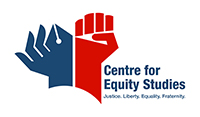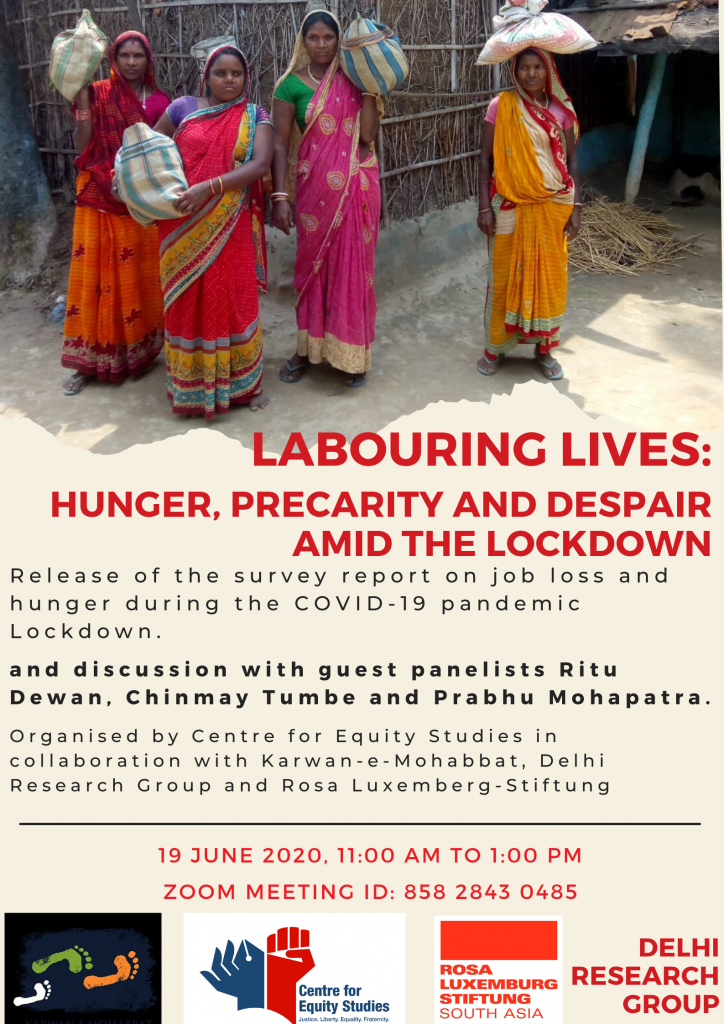The Centre for Equity Studies, the Delhi Research Group and the Karwan-e-Mohabbat campaign combined to undertake a survey to address a few key questions in terms of the how India’s labouring classes have been coping with the strictest lockdown the world has seen. We will release the report online in a webinar on 19th June at 11 am (Zoom Meeting ID above) wherein we will discuss the findings. We will have with us in the panel Ritu Dewan (Vice President of Indian Society of Labour Economics), Prabhu Mohapatra (Professor, DU with specialization in Labour and Economic History) and Chinmay Tumbe (Asst. Professor at IIMA with specialization in Cities & Migration).
Context and purpose of survey in brief:
As the humanitarian crisis of joblessness, intense food insecurity and massive dislocation of workers rapidly unfolded, many civil society organisations, humanitarian aid groups, common citizens and religious organisations stepped in to support the people in distress. One of these was Aman Biradari Trust under its Karwan-e-Mohabbat campaign. The Centre for Equity Studies and the Delhi Research Group came together to conduct this rapid survey among workers – mainly those who contacted and were reached food relief by Aman Biradari Trust – to add to our understanding of various aspects of the impact of the lockdown on the lives, livelihoods and food security of the labouring poor. It attempted to cover both migrant and settled workers in both urban and rural India.
It was based on 1405 extensive interviews, mostly on telephone, with workers reached for food support by Karwan-e-Mohabbat volunteers of Aman Biradari Trust. Its relief work extended to under its Delhi-NCR, Uttar Pradesh, Bihar, Haryana, Himachal Pradesh, Assam, Rajasthan and Jharkhand, which defined the data base of the study.

